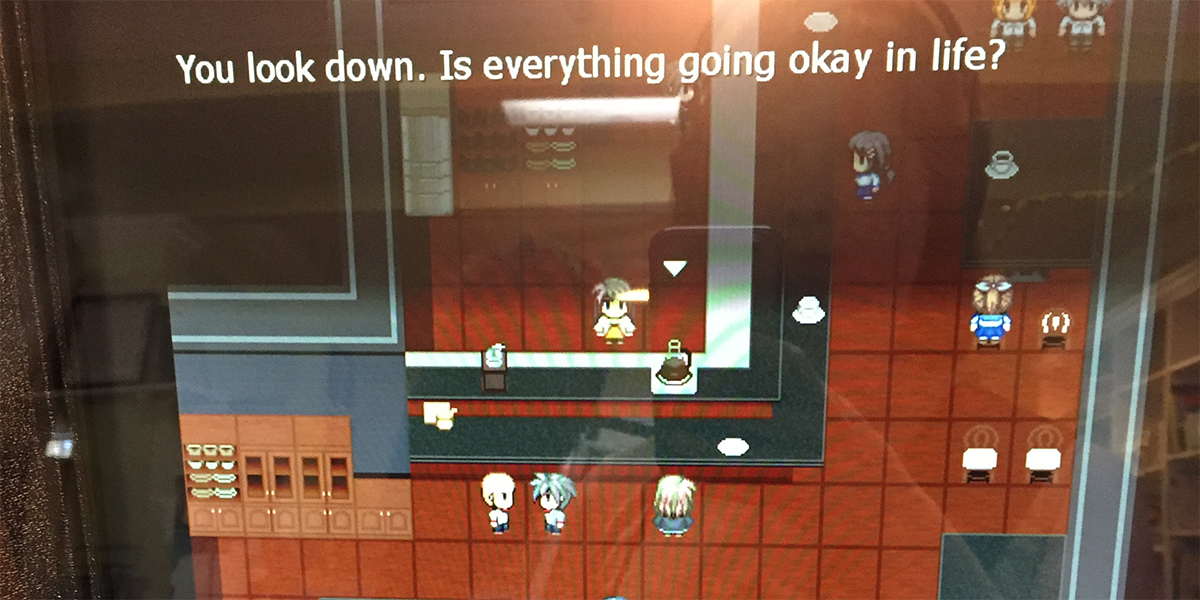Atlanta Project Seeks To Bring Diversity To Gaming World

Kate Sweeney / WABE
Hundreds of programmers descended on Atlanta last weekend for the Southern Interactive Entertainment and Games Expo. Gaming is a $23 billion industry where women are still in the minority, even though they make up half of the nation’s video gamers.
The Dear Games project is hoping to move the needle on this.
Exhibit A?
The video game console at Charis Books & More, Atlanta’s oldest feminist bookstore in Little Five Points. It looks like something you’d have played “The Legend of Zelda” or “Donkey Kong” on back in the day. But this game, Mainichi, by programmer Mattie Brice, isn’t about saving some princess. Instead, you play a transgender woman of color just trying to make it through her day without harassment.
Part of the aim of Dear Games, a collaboration between Charis and programming grad students at Georgia Tech, is to spotlight games like this one, which feature the kinds of characters we just don’t see very often in the gaming world.
But it’s also about who’s creating the games. Project organizer Sarah Schumann is floored on the regular when she hears people express surprise at the fact that half of the nation’s gamers are female.
“Yeah, I mean I feel like it’s almost sort of a joke at this point,” she says, “that every six months, an article comes out that’s like, ‘Guess what? Women are actually playing games!’”
On the other hand, she says it’s easy for her and her colleagues, who live and breathe gaming, to get snarky about this. This project is meant, in part, to spread the word: Not all gamers are 16-year-old white dudes.
“It’s just not true anymore,” says Molly Proffitt, CEO of Atlanta-based Ker-Chunk Games. She says these days, the average video game player is in their mid-30s. She may play “Angry Birds” on her phone, or “Candy Crush.” (We’re looking at you, “Pokemon Go” hunter.)
But despite that fact, she says “only 20 percent of people who work in games are women.” Even fewer are programmers; about 5 percent.
Here in Atlanta, Proffitt says she sees a lot of women programmers pulling up stakes and leaving for cities like San Francisco, which does a better job of attracting diverse workers who create more than the first-person shooter games that usually take up the industry spotlight. She says Atlanta needs to take advantage of its diversity to become truly competitive in the gaming industry.
To help, Dear Games offers a variety of programming, including lectures, discussions and projects where attendees can do a little programming of their own. Video games at Charis Books will also rotate out in the months to come.
9(MDAxODM0MDY4MDEyMTY4NDA3MzI3YjkzMw004))





